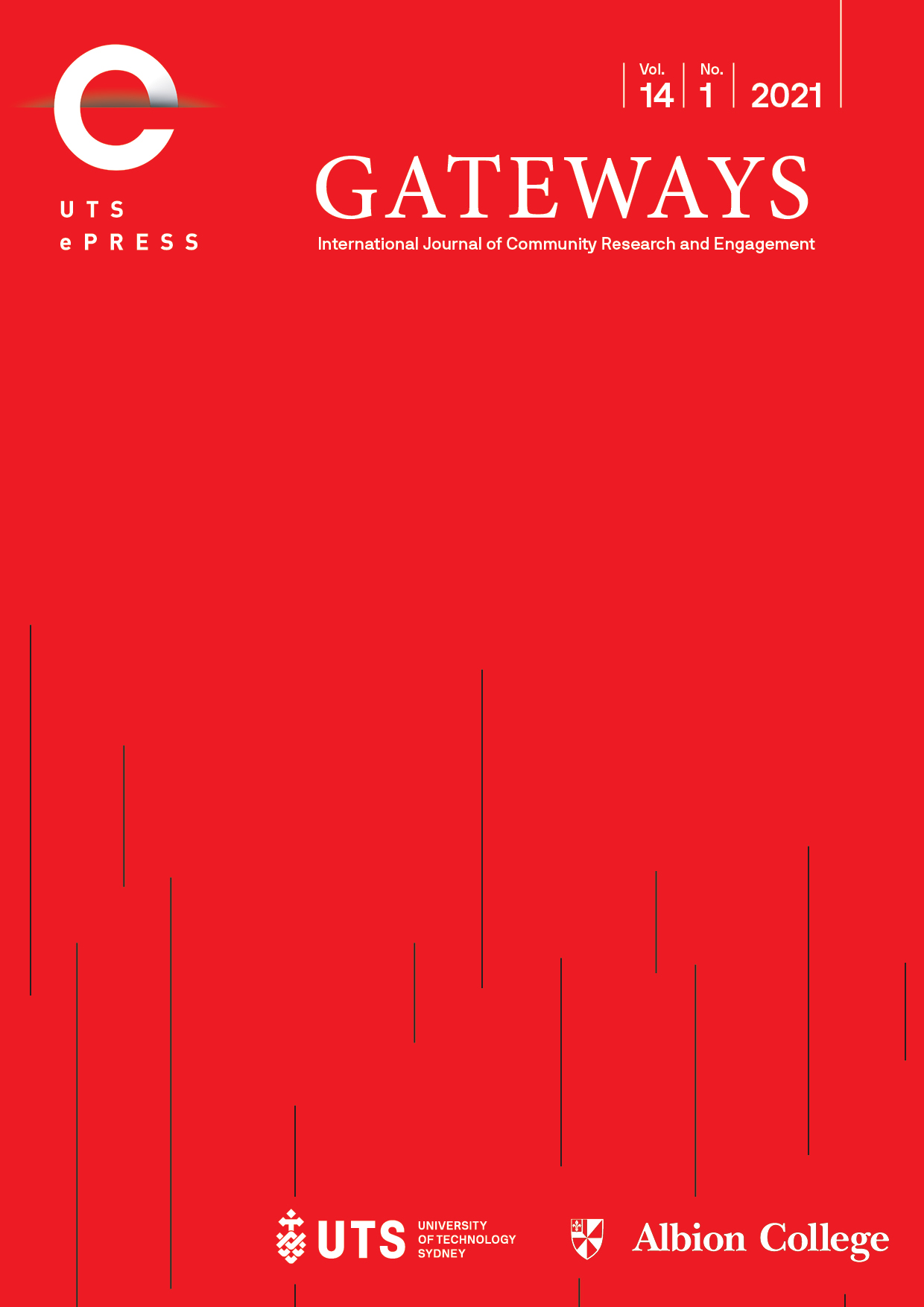Trauma informed participatory research: Reflections on co-producing a research proposal
Main Article Content
Abstract
This article discusses the development of a co-produced research proposal. The authors reflect on the process of this work and some of the challenges that were experienced by a team who had a mix of lived, clinical and academic experience of the research topic. We highlight the need to embed trauma informed principles into co-produced research and the ways in which doing so can support the development of co-produced work. As such, the article focuses on how we established safety, choice, collaboration, trustworthiness and empowerment during the process of developing the proposal. Within this we offer our reflection on some of the challenges we experienced and our learning from undertaking this work.
Article Details
Issue
Section
Authors who submit articles to this journal from 31st March 2014 for publication, agree to the following terms:
a) Authors retain copyright and grant the journal right of first publication with the work simultaneously licensed under a Creative Commons Attribution License that allows others to share and adapt the work with an acknowledgement of the work's authorship and initial publication in this journal.
b) Authors are able to enter into separate, additional contractual arrangements for the non-exclusive distribution of the journal's published version of the work (e.g., post it to an institutional repository or publish it in a book), with an acknowledgement of its initial publication in this journal.
c) Authors are permitted and encouraged to post their work online (e.g., in institutional repositories or on their website) prior to and during the submission process, as it can lead to productive exchanges, as well as earlier and greater citation of published work (See The Open Access Citation Advantage Service). Where authors include such a work in an institutional repository or on their website (ie. a copy of a work which has been published in a UTS ePRESS journal, or a pre-print or post-print version of that work), we request that they include a statement that acknowledges the UTS ePRESS publication including the name of the journal, the volume number and a web-link to the journal item.
d) Authors should be aware that the Creative Commons Attribution (CC-BY) License permits readers to share (copy and redistribute the work in any medium or format) and adapt (remix, transform, and build upon the work) for any purpose, even commercially, provided they also give appropriate credit to the work, provide a link to the license, and indicate if changes were made. They may do these things in any reasonable manner, but not in any way that suggests you or your publisher endorses their use.
For Volume 6 (2013) and before, the following copyright applied:
Articles published by UTSePress are protected by copyright which is retained by the authors who assert their moral rights. Authors control translation and reproduction rights to their works published by UTSePress. UTSePress publications are copyright and all rights are reserved worldwide. Downloads of specific portions of them are permitted for personal use only, not for commercial use or resale. Permissions to reprint or use any materials should be directed to UTSePress.
References
Aluli-Meyer, M. (2006) ‘Changing the Culture of Research: An Introduction to the Triangulation of Meaning’, Hūlili: Multidisciplinary Research on Hawaiian Well-Being, 3(1), pp. 260–280.
Botha, M., Hanlon, J. and Williams, G. . (2021) ‘Does language matter? Identity-first versus person-first language use in autism research: A response to Vivanti.’, Journal of Autism and Developmental Disorders, 1-9. Being(1), pp. 263–279. doi: https://doi.org/10.1007/s10803-020-04858-w.
Bottema-Beutal, K. et al. (2021) ‘Avoiding ableist language: Suggestions for autism researchers.’, Autism in Adulthood, 3(1), pp. 18–29. doi: 10.1111/papt.12248.
Fanjoy, M. and Bragg, B. (2019) ‘Embracing complexity: Co-creation with retired immigrant women’, Gateways: International Journal of Community Research and Engagement, 12(1), pp. 1–16. doi: 10.5130/ijcre.v12i1.6342.
Hall, B. and Tandon, R. (2020) ‘“Editorial: Knowledge democracy for a transforming world”.’, Gateways: International Journal of Community Research and Engagement, 13(1), pp. 1–15. doi: https://doi.org/10.5130/ijcre.v13i1.7225.
Holmes, M. (2010) ‘The emotionalization of reflexivity’, Sociology, 44(1), pp. 139–154. doi: 10.1177/0038038509351616.
Jowett, S., Karatzias, T. and Albert, I. (2019) ‘Multiple and interpersonal trauma are risk factors for both post‐traumatic stress disorder and borderline personality disorder: A systematic review on the traumatic backgrounds and clinical characteristics of comorbid post‐traumatic stress disorder/border’, Psychology and Psychotherapy: Theory, Research and Practice. doi: 10.1111/papt.12248.
Lambert, N. and Carr, S. (2018) ‘“Outside the Original Remit”: Co-production in UK mental health research, lessons from the field’, International Journal of Mental Health Nursing, 27(4), pp. 1273–1281. doi: 10.1111/inm.12499.
Lebow, J. (1982) ‘Consumer satisfaction with mental health treatment’, Psychological Bulletin, 9, pp. 244–259. doi: https://doi.org/10.1037/0033-2909.91.2.244.
Lonbay, S. P. et al. (2020) ‘Enhancing Educator by Experience led social work training : Lessons learned from the development of a Teaching Partnership Funded Project Enhancing Educator by Experience led social work training : Partnership Funded Project’, Social Work Education, 00(00), pp. 1–17. doi: 10.1080/02615479.2020.1843615.
Michael, C. (2021) ‘Is being othered a co-occuring condition of autism?’, Autism in Adulthood. doi: https://doi.org/10.1089/aut.2021.0019.
Mitchel, E. (2013) The Sick Role, NHS. Available at: https://www.england.nhs.uk/blog/ed-mitchell-2 (Accessed: 21 July 2020).
Rumball, F., Happé, F. and Grey, N. (2020) ‘Experience of Trauma and PTSD Symptoms in Autistic Adults: Risk of PTSD Development Following DSM-5 and Non-DSM-5 Traumatic Life Events’, Autism Research, pp. 1–11. doi: 10.1002/aur.2306.
Russo, J. and Beresford, P. (2015) ‘Between exclusion and colonisation: seeking a place for mad people’s knowledge in academia’, Disability and Society, 30(1), pp. 153–157. doi: 10.1080/09687599.2014.957925.
Wilcock, A. and Quaid, S. (2018) Exploring the Dynamics of Situated emotionality in Feminist Standpoint Epistemology. Sunderland. Available at: https://www.sunderland.ac.uk/images/external-websites/www/research/institutes/Wilcock-and-Quaid-CASS-Working-Paper.pdf.
